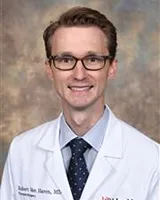- Early career surgeons are critical to the education and mentorship of medical students and surgical residents.
- There are many ways early careerists can get involved in helping young surgeons establish and advance their careers.
- Depending on your specific interest, consider medical student and resident education at your local institution, accreditation with the ACGME, and national organizations such as the STS and the TSDA.

The education of medical students and residents is critical for the future growth and improvement in the field of cardiothoracic surgery. Mentorship is also necessary to promote interest in the field and ensure a diverse workforce. Early career cardiothoracic surgeons need to be involved in the education and mentorship of the next generation of surgeons. This effort can develop into a successful career pathway for personal development, leadership, and promotion. In this article, I share ways early career cardiothoracic surgeons can get involved in educational opportunities for future surgeons.
Resident Education
If you are an early career surgeon who has a thoracic surgery residency program, getting involved in education can be straightforward. Resident education is part of the daily job and delivering lectures in academic conferences is important and adds value to your academic portfolio. If your program doesn’t have a thoracic surgery residency, then most likely there are similar opportunities in a general surgery residency. (Find more tips on effective resident education here).
There are several administrative opportunities, such as program director and associate program director, that are key leadership positions within a department. Early career surgeons are in an excellent position to bring new ideas and their own recent training experiences to the table to make improvements. Curriculum development and scheduling, organization or improvement of surgical simulation, and resident recruitment are all important areas that an early career surgeon can help. If these leadership positions are already filled, be sure to express your interest and desire to take over when the opportunity arises. Other activities, such as working on the Clinical Competency Committee or becoming the committee chair can be a good way to get involved.
The Thoracic Surgery Directors Association (TSDA) is an organization for cardiothoracic surgery residency program directors and program coordinators. Numerous committee and leadership opportunities are great for early career surgeons. This is a relatively small organization, which is very collegial and a great pathway to leadership in education. There also is surgical education research in a cooperative approach with the Thoracic Education Cooperative Group (TECoG). This scholarly activity can help advance thoracic surgery education and enhance your education career pathway.
Medical Student Education
Another pathway for an education career is in medical student education. This could involve leading the organization and education of medical students while on cardiothoracic surgery rotations. There is potential for involvement in roles like the clerkship director for general surgery rotations. This is especially true for those without dedicated cardiothoracic rotations or training programs.
There are other administrative opportunities, such as participating on the admissions committee and more formal participation in preclinical years of medical student education, including small group involvement or serving as a longitudinal preceptor. These experiences can connect you with others interested in education outside the field of surgery and can broaden your perspective on education. Medical school education is often overlooked by early career surgeons, but it is another great avenue for developing an education career path.
Accreditation and Oversight
At an institutional level, the Office of Graduate Medical Education focuses on accreditation, advocacy, and advancement of a stimulating learning environment for resident education. Similarly, at a national level there is potential for involvement in the Accreditation Council for Graduate Medical Education (ACGME). The review Committee for Thoracic Surgery accredits residency and fellowship programs. These organizations participate in a different aspect of surgical education, but it is another area for developing an education career path if it aligns with your interest.
National Organizations
The Society of Thoracic Surgeons has a Workforce on E-Learning and Educational Innovation. This is a great opportunity to network with other cardiothoracic surgeons throughout the country and be involved in education innovation. Recently, the Workforce has been updating the STS Learning Center content. You can self-nominations for this Workforce. If interested, discuss your interest with the Workforce.
No doubt there are many avenues to kickstart a successful education career pathway. Early career surgeons are critical to the education and mentorship of medical students and surgical residents. Depending on your specific interest, there is medical student and resident education at your local institution, accreditation with the ACGME, and national organizations such as the STS and the TSDA.
